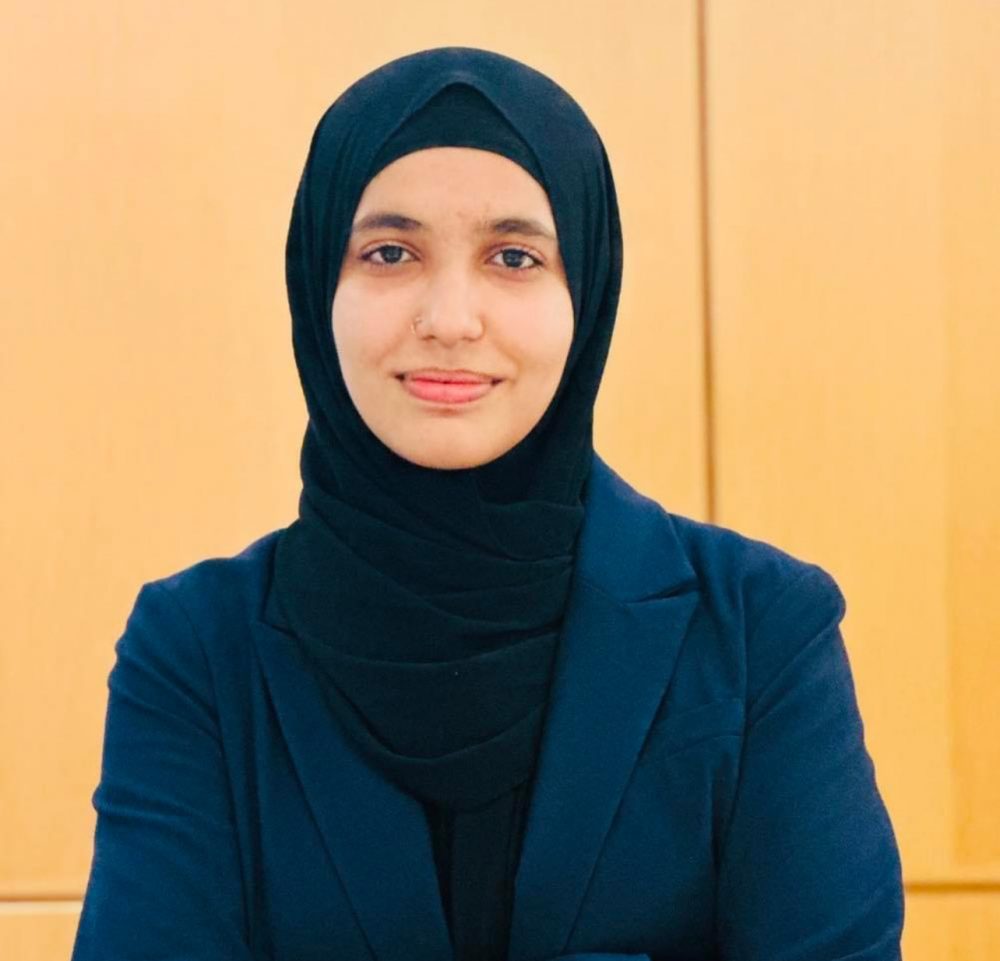Every Girl Needs Education in Every Country
Teenagers from Afghanistan advocate for education for those who were left behind.

My name is Sana Kawoon. I grew up in Kabul, Afghanistan. I helped my friends make a documentary about women in Afghanistan. I want to share my story so people can read and understand what Afghan girls are doing.
In Afghanistan, I went to school. My middle school and high school were in the same school. There were about 30 to 40 students in one class. We had 16 subjects and we would do eight subjects every day. We had chemistry, biology, science, physics, Dari, Pashto, English, math. We didn’t move from class to class. For every subject, we would stay in that one class, and I was the class leader. So I would help the students with their homework, with every question they had, and lead the classroom . I would go and ask the teacher about that question and then help the student with the problem.
My teachers were good. They would help us because they understand that we are studying so many subjects. They would help us with the questions we had and try to make the subject easier for us so we could understand.
I was in an all girls school, so all of my teachers were female.
In Afghanistan everyone lives with big families: cousins, uncles, grandparents, etc. So after school we would hang out with cousins, go to parks or we would go to extra classes. We went to English courses a lot. It was a fun time to grow up with your family. I had a big family in Afghanistan. Here I’m just living with my parents and four siblings.
Like all females in Afghanistan my family members are no longer going to school. When I see them like this, it hurts me. My cousin is in third grade. But girls can go to school only until sixth grade, so I worry about her. She’ll go to fourth grade next year. But after two years, what will happen to her? Seeing my family’s life change so suddenly hurts.
I am a junior in high school here in Virginia. The first day I was excited and nervous because it was my first time going to school where I will not speak my own language. But the school helped me through the process. The school and the students were welcoming. I think it was because they knew what had happened in Afghanistan.
When the Taliban took over, I was shocked. One day, everything was normal, and the next, the Taliban took over the country. When I woke up, everything was upside down. We left Afghanistan that same day.
All I could pack was some clothes. I emptied my school backpack and just put some clothes in and put on my shoes and went straight to the airport. We were able to get on a plane late that night. We spent less than a week in Qatar, then Germany, and then arrived in the United States.
While I am here, I want to continue my education. I want to go to college and study political economy and international relations.
My parents never told me, “You are a girl, you can’t do this, you can’t go to school, you can’t have the rights that men have.” They have never told me that. My parents have always supported me. My parents are both educated, and my mother is continuing her studies at a community college here in the States.
I am a Youth Commissioner at Alexandria Commission on Employment. I am part of many clubs and activities in my school, so I spend a lot of my time after school. That is something that could help newcomers, to get them involved in activities so they have something to do besides just going to school.
We made the documentary so people would know about what is happening to girls in Afghanistan, and try to help. Girls in Afghanistan need education. We need organizations who can make online courses for them, like English, science, history and math. They need to be able to continue their education without sitting in their home for hours and hours, and hiding their talents behind the darkness .
Education is a right that everyone needs to have. No one should take the right of education from women in Afghanistan or any other country.
Every girl needs education in every country.
Our team members obtain informed consent from each individual before an interview takes place. Individuals dictate where their stories may be shared and what personal information they wish to keep private. In situations where the individual is at risk and/or wishes to remain anonymous, alias names are used and other identifying information is removed from interviews immediately after they are received by TSOS. We have also committed not to use refugee images or stories for fundraising purposes without explicit permission. Our top priority is to protect and honor the wishes of our interview subjects.